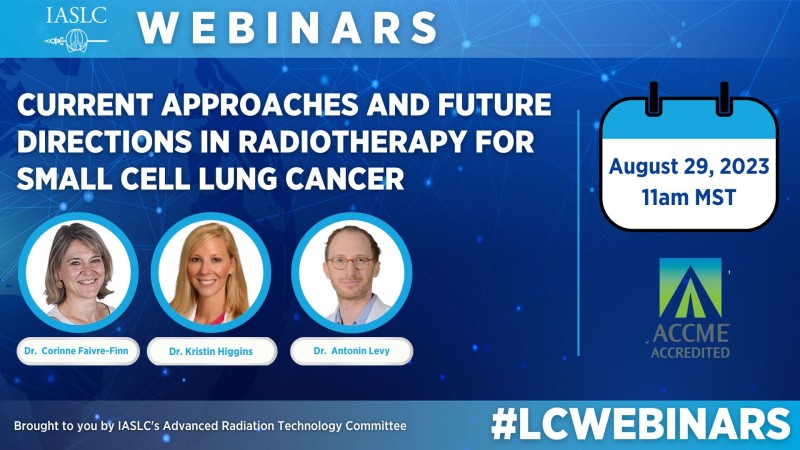
This webinar will address controversies in the way radiation therapy is used to treat both limited and extensive stage small cell lung cancer, including thoracic radiation, hippocampal sparing prophylactic cranial radiation, and the treatment of brain metastases. It will also address the evolving role of radiotherapy in the context of new chemo-immunotherapy treatments.
Learning Objectives:
At the end of the webinar, learners will be able to:
- Evaluate the optimal thoracic radiation fractionation and timing of radiation in both extensive and limited stage small cell lung cancer.
- Summarize the current data for (HA)-PCI in small cell lung cancer and best practice for surveillance of the brain in patients not undergoing PCI.
- Review the evolving use of SRS in small cell lung cancer and determine how it fits into clinical practice, given the current data.
- Examine the evolving role of radiotherapy in the context of new chemo-immunotherapy treatments.
This activity has been planned and implemented in accordance with the accreditation requirements and policies of the Accreditation Council for Continuing Medical Education (ACCME). The International Association for the Study of Lung Cancer is accredited by the ACCME to provide continuing medical education for physicians.
The International Association for the Study of Lung Cancer designates the live format for this educational activity for a maximum of 1.00 AMA PRA Category 1 Credits. Physicians should only claim credit commensurate with the extent of their participation in the activity.



